Avishek Das
Reinforcement learning of rare diffusive dynamics
May 10, 2021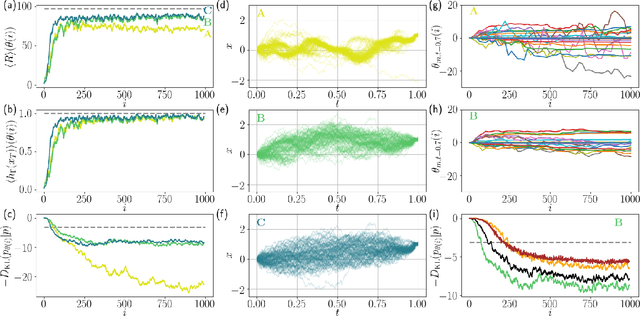
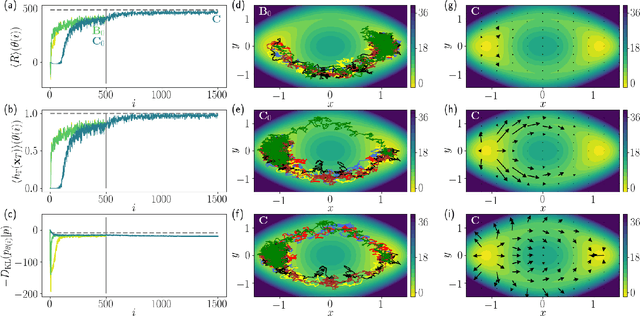


Abstract:We present a method to probe rare molecular dynamics trajectories directly using reinforcement learning. We consider trajectories that are conditioned to transition between regions of configuration space in finite time, like those relevant in the study of reactive events, as well as trajectories exhibiting rare fluctuations of time-integrated quantities in the long time limit, like those relevant in the calculation of large deviation functions. In both cases, reinforcement learning techniques are used to optimize an added force that minimizes the Kullback-Leibler divergence between the conditioned trajectory ensemble and a driven one. Under the optimized added force, the system evolves the rare fluctuation as a typical one, affording a variational estimate of its likelihood in the original trajectory ensemble. Low variance gradients employing value functions are proposed to increase the convergence of the optimal force. The method we develop employing these gradients leads to efficient and accurate estimates of both the optimal force and the likelihood of the rare event for a variety of model systems.
Emotion Classification in a Resource Constrained Language Using Transformer-based Approach
Apr 17, 2021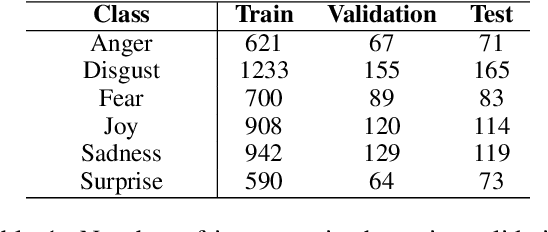
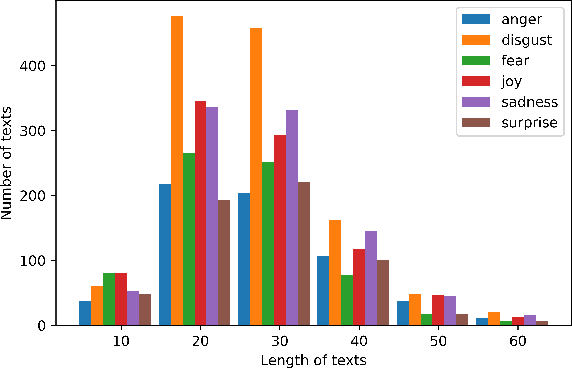
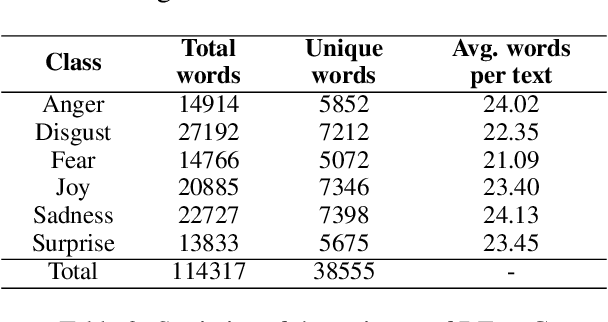
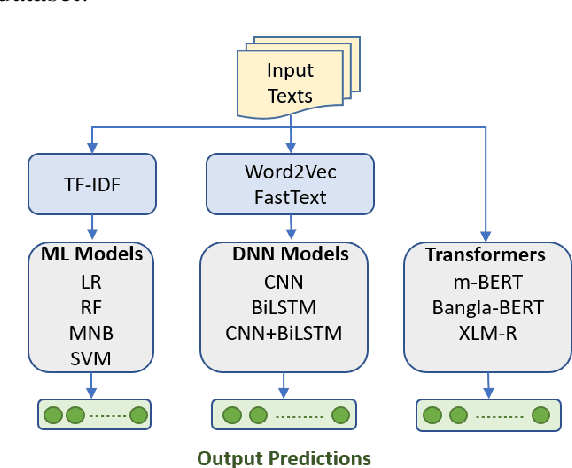
Abstract:Although research on emotion classification has significantly progressed in high-resource languages, it is still infancy for resource-constrained languages like Bengali. However, unavailability of necessary language processing tools and deficiency of benchmark corpora makes the emotion classification task in Bengali more challenging and complicated. This work proposes a transformer-based technique to classify the Bengali text into one of the six basic emotions: anger, fear, disgust, sadness, joy, and surprise. A Bengali emotion corpus consists of 6243 texts is developed for the classification task. Experimentation carried out using various machine learning (LR, RF, MNB, SVM), deep neural networks (CNN, BiLSTM, CNN+BiLSTM) and transformer (Bangla-BERT, m-BERT, XLM-R) based approaches. Experimental outcomes indicate that XLM-R outdoes all other techniques by achieving the highest weighted $f_1$-score of $69.73\%$ on the test data. The dataset is publicly available at https://github.com/omar-sharif03/NAACL-SRW-2021.
 Add to Chrome
Add to Chrome Add to Firefox
Add to Firefox Add to Edge
Add to Edge